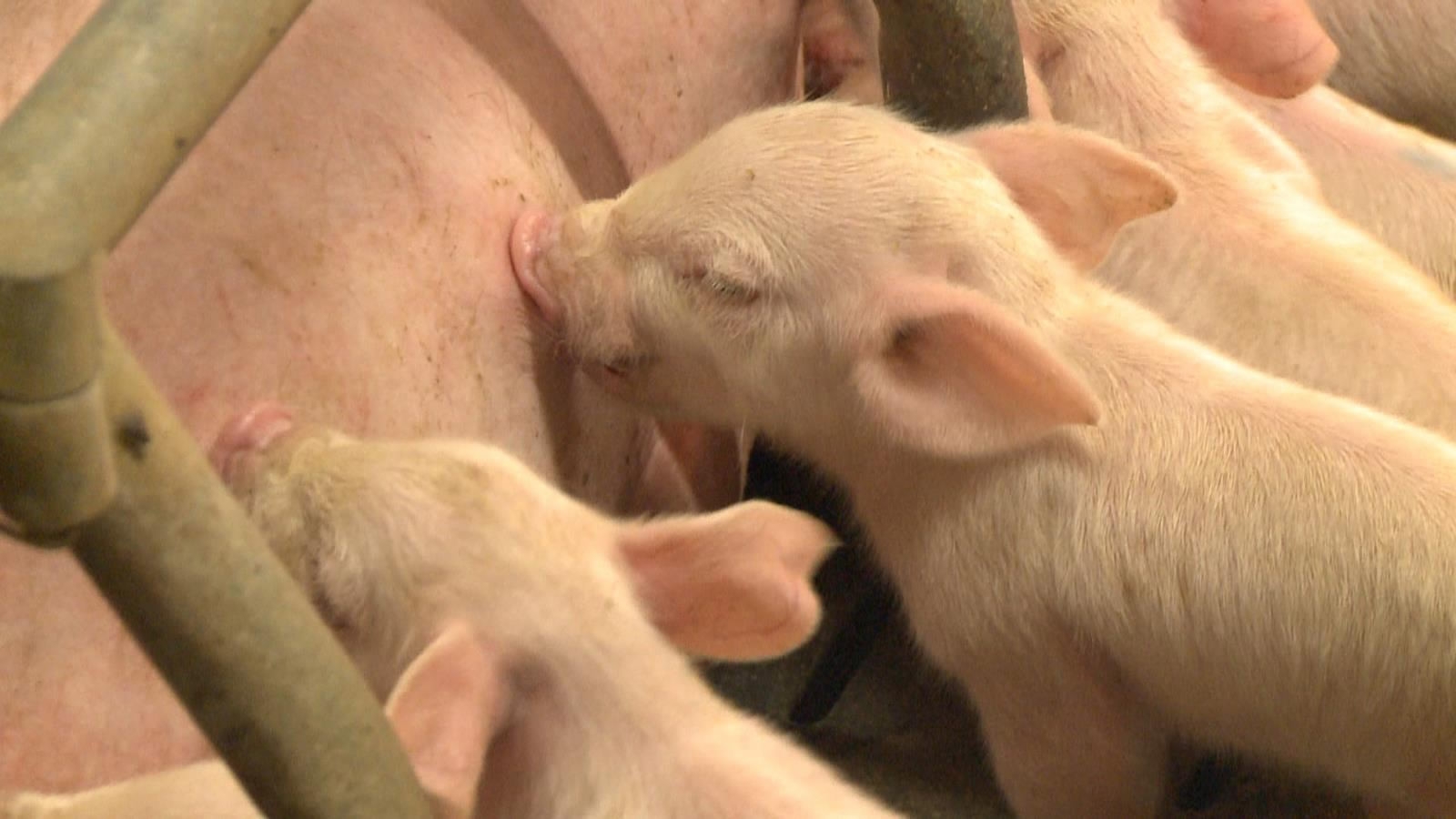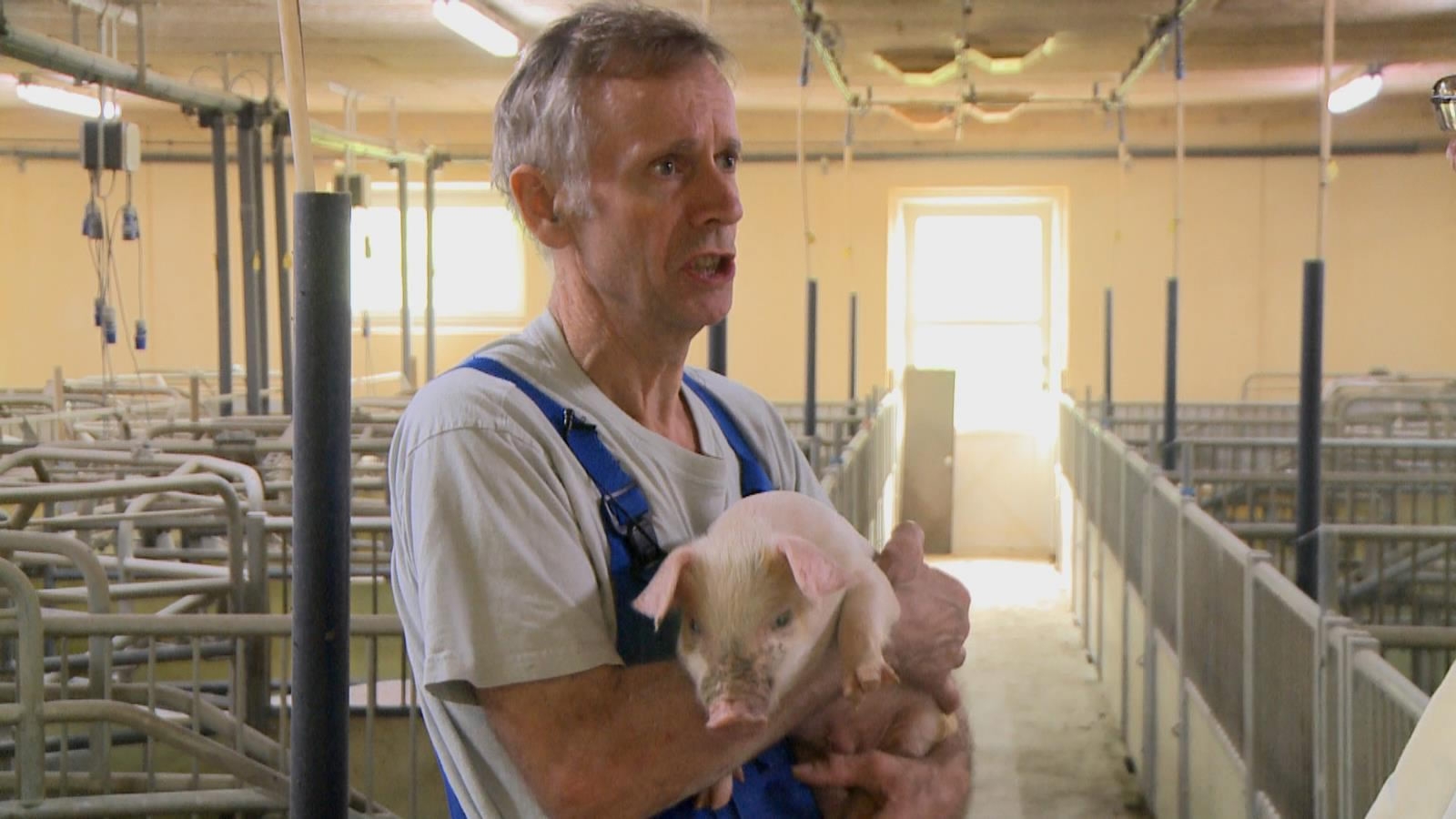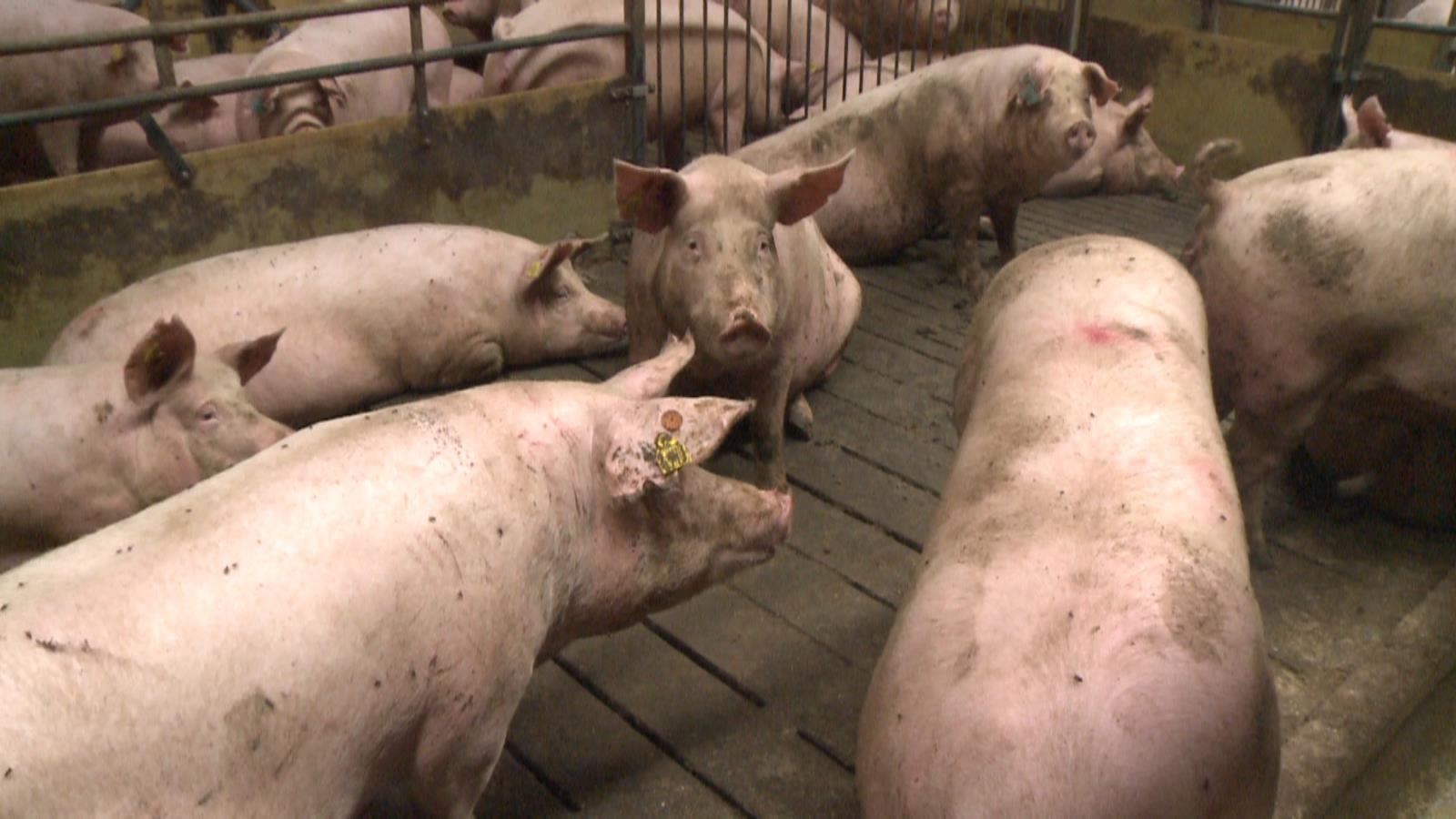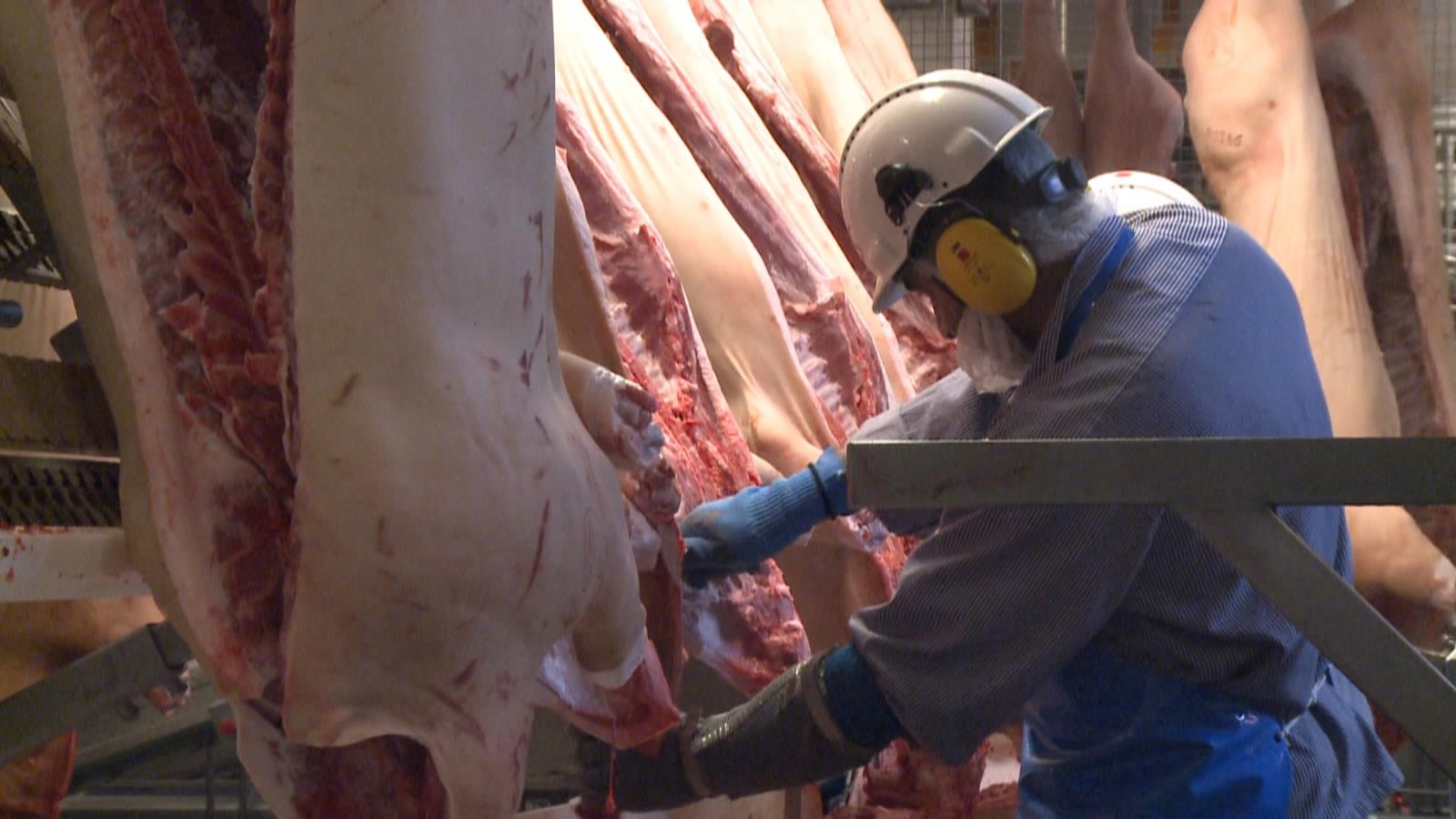
Business
22:52, 01-Sep-2017
Danish pig industry pledges strict food safety controls
By CGTN's Zhang He

With Europe's food safety credibility harmed by this year's egg scandal, Danish pig farmers have pledged strict food safety controls for Danish pork production, one of the countries’ key farming industries.
With a population of just 5.5 million, Denmark raises over 30 million pigs for slaughter, making it one of the biggest pork exporters in the world. For Denmark, food safety is crucial for maintaining a good reputation for its pork products.

Danish pig farmer works hard to minimize the use of antibiotics. /CGTN Photo
Danish pig farmer works hard to minimize the use of antibiotics. /CGTN Photo
“You look at the whole value chain. It is very important that each simple step is done responsibly and the right thing is done concerning food safety and animal health,” said Jens Munk Ebbesen, Director of Food & Veterinary Issues, Danish Agriculture & Food Council.
Nielsen’s family runs a pig farm that has 1,400 sows. He showed us an automatic system for feeding new-born pigs that he has been using since the Danish government banned the use of antibiotics.

In Denmark, pigs have their unique number to make them traceable. /CGTN Photo
In Denmark, pigs have their unique number to make them traceable. /CGTN Photo
“In Denmark, it is the responsibility of every single farmer to work as hard as he can to minimize the use of antibiotics,” said Bent Munk Nielsen, whose family has owned the farm for three generations.
”Here is a slow transition from mother milk from the sow to solid feed. This is one example of how we minimize the use of antibiotics in Denmark. It makes pigs healthy and happy,” Nielsen added.

The Danish Crown’s slaughterhouse in Horsens, Demark /CGTN Photo
The Danish Crown’s slaughterhouse in Horsens, Demark /CGTN Photo
Pigs have their unique numbers to make them traceable, and details such as farm information, and the use of medicine or antibiotics, is stored in a data base, making it easy to trace problems.
“We have well educated farmers, who know exactly what to do and how to live up to standards. They are responsible for reporting what they see as abnormal. So we can prevent troubles or outbreak of diseases early on,” said Jan Laustsen, Director of Danish Agriculture and Food Council.
Strict food safety standard has been imposed in slaughterhouses. To reduce chances of pollution, visitors have to change clothes and wash hands before they are allowed into the workplace. Robots have taken over much of the manual work involved in the slaughtering line.

SITEMAP
Copyright © 2018 CGTN. Beijing ICP prepared NO.16065310-3
Copyright © 2018 CGTN. Beijing ICP prepared NO.16065310-3